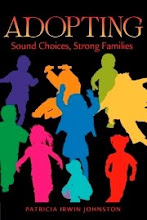 Two weeks ago I attended a national conference in Arlington, VA, on embryo adoption and donation. Most presenters argued for the “life begins at the moment of conception” position that assigns personhood to fertilized eggs in the embryonic state and the moral imperative to care and plan for them responsibly. Embryo donation and adoption was the thrust of the “care plan.”
Two weeks ago I attended a national conference in Arlington, VA, on embryo adoption and donation. Most presenters argued for the “life begins at the moment of conception” position that assigns personhood to fertilized eggs in the embryonic state and the moral imperative to care and plan for them responsibly. Embryo donation and adoption was the thrust of the “care plan.”
Acknowledging that the practice is “fraught with legal, moral, ethical and spiritual issues,” Tom Atwood, President and CEO of the National Council for Adoption in Alexandria, VA, called for legal clarity and suggested that this practice needs to develop new terminology to describe the process. Calling embryo donation “adoption” confuses the clear, legal meaning of that already well-defined and generally accepted term, argued Atwood. Adoption means the embryo is a person while donation and transfer mean the embryo is property. The distinction begs the question of whether one can adopt a piece of property and make it a member of one’s family or own a person.
So, what’s in a name? Atwood suggested the phrase “placement for pregnancy and parenting,” shortened to “embryo placement” would identify the specific purpose of gifting one’s embryos to a receiving family and distinguishing this embryonic practice from others.
In this election year, few would argue against the power of the written and spoken word to sway thought and action. The feds/current administration has already awarded several millions to spin the story for the public. We have yet to see how law and practice will emerge to ensure that embryo placement is ethical and in the “best interest of the embryo.” Your thoughts?
 Two weeks ago I attended a national conference in
Two weeks ago I attended a national conference in 



